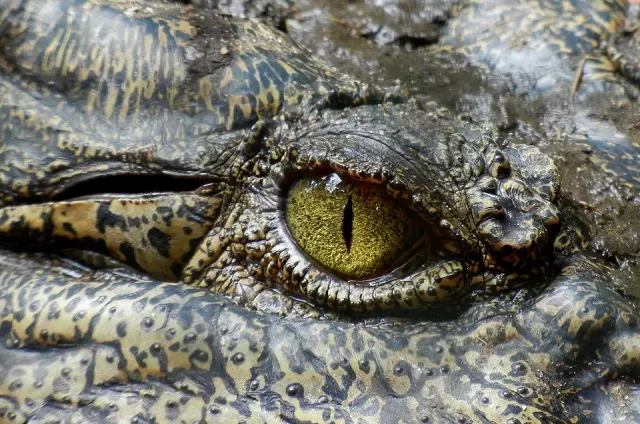These animals are well off with a few bites of food for ages
Nature can be surprising sometimes, and when it comes to eating habits, it also shows us just how differently each species can use the amount of nutrition that they have gained. Us, mammals need plenty of energy to burn, because we need to heat out bodies, and most mammals also need to provide their more complex brains enough resources. But then again, there are some strange exceptions now and then...
Crocodiles can survive up to months with one filling luch... (Photo: pixabay.com / Angelo Giordano)
Crocodiles
Crocodiles are reptiles, which means that they don't need to produce the heat for their own bodies, but rather, they absorb it from the surrounding world. This means that they need less food, and while many reptiles can go without food for days, the crocodile can survive for months, and if it's lucky and had some huge meal paired with a lazy life, then it can live up to a whole year without needing to feed again. Yet, this doesn't mean that fasting is good for the animal, so whenever it sees a tasty prey, it will pursue it....
Bears
Many people know that bears hibernate in the winter - at least, many of them do -, which means that their heart rate drops, their bodily functions are extremely low, and they mostly live off the fat that they gained during their autumn feeding frenzy. While some bears occasionally "wake up' during the winter months for some time, this is a period of time when they usually won't eat barely anything.
Desert rain frogs
Known to many for their adorable sound, the desert rain frogs are actually little survival machines. They dig themselves into the ground where they live as if in a capsule, and then the rainy seasons come, they "sprout" out of the ground and live their lives just like any other frogs would do. They of course don't eat while they are in the ground. What's amazing is they can survive in an environments that's so harsh, despite being amphibians - a group that usually can't adapt that easily to extreme conditions.
Giant salamander
China gives home to one of the world's most incredible amphibian, the giant salamander. Not only does it grows up to 1-1,2 meters long, to maintain this huge body, it doesn't always need to eat that much at all. In fact, they can live for weeks or months without any food if there's no food in sight. This is actually a quite common thing among salamanders and newts, that are also known to be incredible at regenerating their wounds and injuries throughout their bodies.
Some penguins
Birds usually need to eat a lot to maintain their sophisticated bodies and to get enough energy to fly. Yet, there are some birds that rarely eat in certain periods of time. Male emperor penguins, for example, gather together to share the warmth of their bodies, and to incubate their eggs in the freezing, harsh environment of their Antarctic homes. In these weeks and months, they can survive without hardly any food, but luckily, their mates usually bring them some treats now and then.
Anita D.
October 2019
